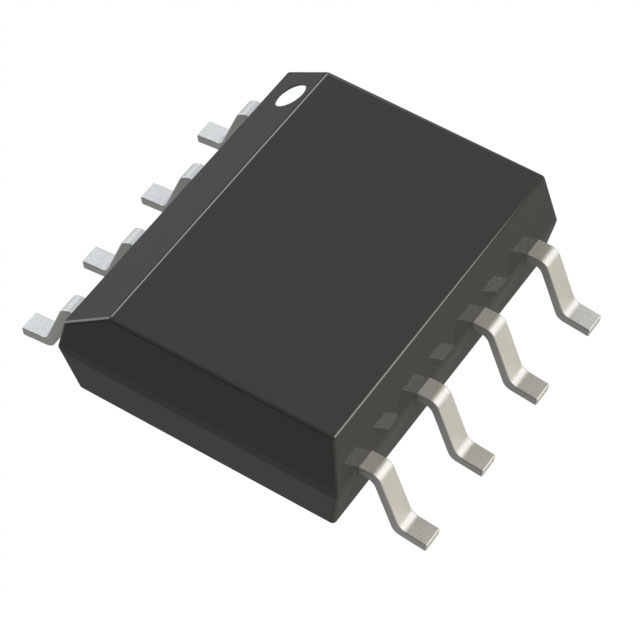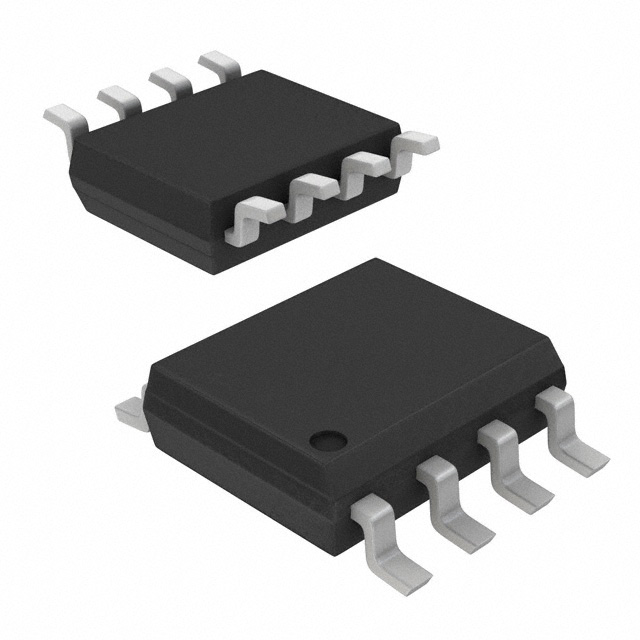OP184ESZ-REEL7
Manufacturer No:
OP184ESZ-REEL7
Manufacturer:
Description:
IC OPAMP GP 1 CIRCUIT 8SOIC
Datasheet:
Delivery:





Payment:




In Stock : 19698
Please send RFQ , we will respond immediately.









OP184ESZ-REEL7 Specifications
-
TypeParameter
-
Gain Bandwidth Product4.25 MHz
-
Current - Output / Channel10 mA
-
Supplier Device Package8-SOIC
-
Package / Case8-SOIC (0.154", 3.90mm Width)
-
Mounting TypeSurface Mount
-
Operating Temperature-40°C ~ 125°C
-
Voltage - Supply Span (Max)36 V
-
Voltage - Supply Span (Min)3 V
-
Current - Supply2.25mA
-
Voltage - Input Offset100 µV
-
Current - Input Bias80 nA
-
-3db Bandwidth-
-
Slew Rate4V/µs
-
Output TypeRail-to-Rail
-
Number of Circuits1
-
Amplifier TypeGeneral Purpose
-
PackagingCut Tape (CT)
-
PackagingTape & Reel (TR)
-
Product StatusActive
-
Series-
The OP184ESZ-REEL7 is a precision operational amplifier integrated circuit chip. Some of its advantages and application scenarios include:1. High Precision: The OP184ESZ-REEL7 offers high precision and accuracy in amplification, making it suitable for applications that require precise signal conditioning and measurement.2. Low Offset Voltage: It has a low offset voltage, which ensures minimal error in amplification and improves overall accuracy in applications such as instrumentation, data acquisition, and sensor signal conditioning.3. Low Input Bias Current: The chip has low input bias current, which reduces the impact of input current on the circuit's performance. This makes it suitable for applications where low input current is critical, such as in high impedance sensor interfaces.4. Wide Supply Voltage Range: The OP184ESZ-REEL7 operates over a wide supply voltage range, typically from ±2V to ±18V. This flexibility allows it to be used in various power supply configurations and applications.5. Rail-to-Rail Output: The chip provides rail-to-rail output swing, meaning it can drive signals close to the supply voltage rails. This feature is beneficial in applications where the full dynamic range of the power supply is required, such as in audio amplification or sensor interfacing.6. Low Noise: The OP184ESZ-REEL7 has low noise characteristics, making it suitable for applications that require high signal fidelity, such as audio amplification, medical instrumentation, and communication systems.7. Single and Dual Supply Operation: The chip can operate with both single and dual supply configurations, providing flexibility in various application scenarios.Some application scenarios where the OP184ESZ-REEL7 can be used include:1. Precision Instrumentation: The high precision and low offset voltage of the chip make it suitable for precision instrumentation applications, such as data acquisition systems, strain gauge amplifiers, and temperature measurement circuits.2. Sensor Signal Conditioning: The low input bias current and high accuracy of the chip make it ideal for amplifying and conditioning signals from various sensors, including pressure sensors, temperature sensors, and photodiodes.3. Audio Amplification: The rail-to-rail output swing and low noise characteristics of the chip make it suitable for audio amplification applications, such as headphone amplifiers, audio mixers, and portable audio devices.4. Active Filters: The OP184ESZ-REEL7 can be used in active filter circuits, such as low-pass, high-pass, and band-pass filters, to achieve precise and accurate filtering of signals in various applications.5. Medical Instrumentation: The high precision and low noise characteristics of the chip make it suitable for medical instrumentation applications, such as ECG amplifiers, patient monitoring systems, and medical imaging equipment.Overall, the OP184ESZ-REEL7 integrated circuit chip offers high precision, low offset voltage, low input bias current, and other features that make it suitable for a wide range of applications requiring accurate amplification and signal conditioning.
OP184ESZ-REEL7 Relevant information
-

AD8034ARZ-REEL7
Analog Devices Inc. -

CA3140AMZ
Renesas Electronics America Inc -

OP07CPZ
Analog Devices Inc. -
LT1636CMS8#TRPBF
Analog Devices Inc. -
LT1490ACS8#TRPBF
Analog Devices Inc. -
LTC2055HMS8#TRPBF
Analog Devices Inc. -
AD8227BRMZ-R7
Analog Devices Inc. -

AD8227BRZ-R7
Analog Devices Inc. -

AD623ARZ-R7
Analog Devices Inc. -
AD623ARMZ-REEL7
Analog Devices Inc.






